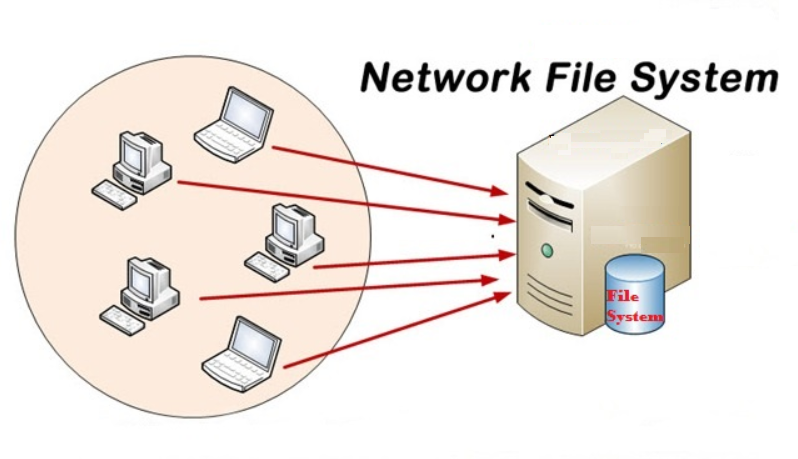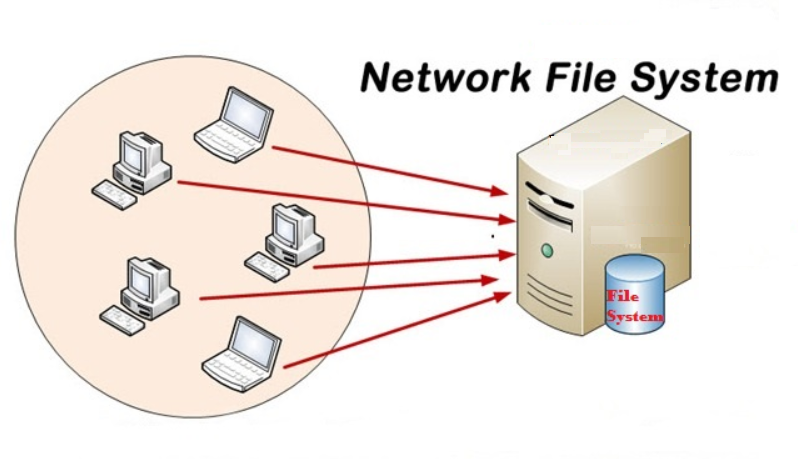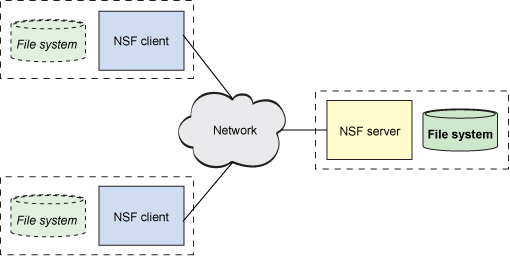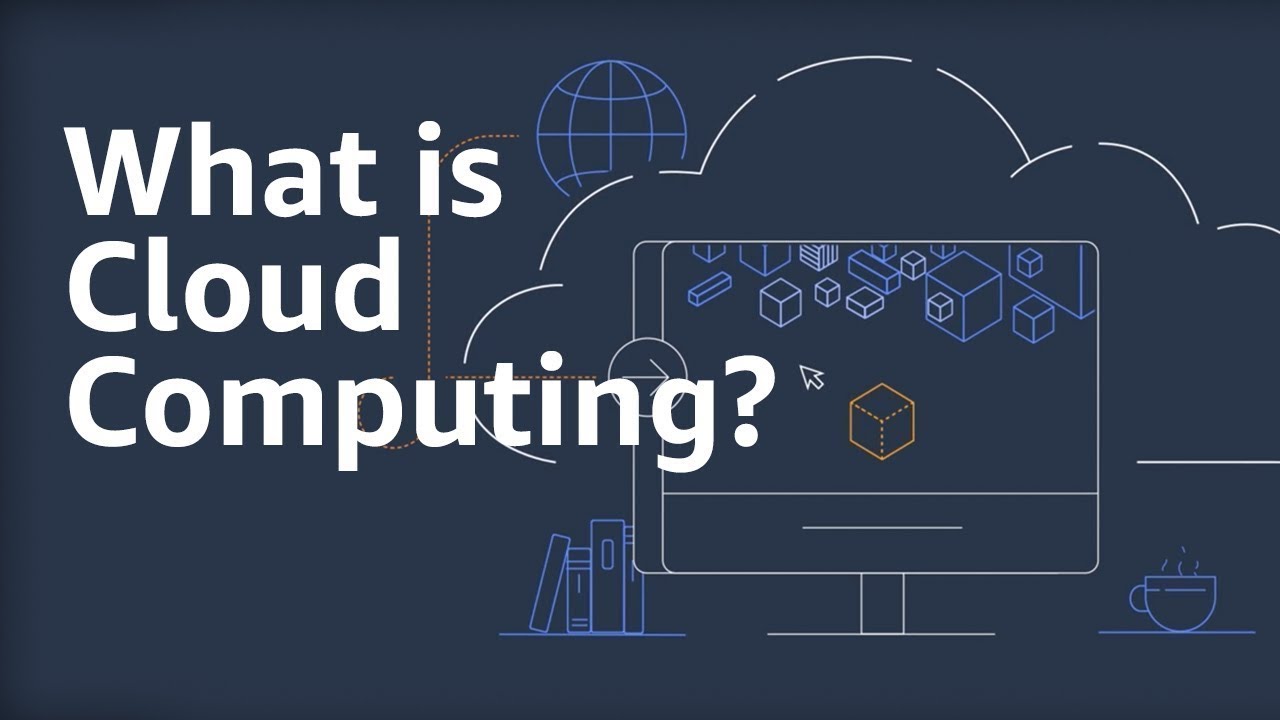What is Network File System (NFS)? Defenition, How It’s Work and Beneftis

In a world more and more related through laptop networks, accessing and transferring files between programs is vital to company productiveness.
One of the elementary applied sciences to allow environment friendly and distributed file entry is the Network File System (NFS).
This text will talk about in depth what a Network File System is — from its fundamental idea, its purposes in varied industries, to its position in cloud computing.
Come on, let’s take a look at the dialogue!
Cloud Object Storage: Solutions to Overcapacity
What is Network File System (NFS)?

Network File System is a network protocol that permits you to share and entry information on a network. The NFS protocol is one in all a number of distributed file system requirements for network-attached storage (IN THE).
Community File System (NFS) was developed in 1984 by Solar Microsystems to help shared file entry and knowledge sharing on native networks (LAN).
Presently, the NFS protocol is supported by Apple Mac OS, Unix, Linux, FreeBSD, and AIX working programs.
As a basis that allows communication and collaboration between programs, NFS is a bridge that permits you to simply entry and share knowledge throughout networks.
You’ll be able to entry data and information related to the network you’ll use. Everybody on the network may have entry to the identical files, making file sharing simpler.
Network File System permits you to entry files situated on a server over a network, so you’ll be able to learn, write, and carry out different file operations on these files.
That is particularly helpful in environments that contain many computer systems or servers that should share knowledge and assets, comparable to in enterprise environments or cloud computing environments.
Network File System can function on all IP-based networks. It’s carried out in a consumer/server software the place the NFS server handles authorization, authentication, and consumer administration.
NFS is a crucial expertise in integrating totally different laptop programs throughout networks, particularly within the context of cloud computing.
How Does NFS Work?

After understanding the that means, you should be questioning, how does Network File System (NFS) work?
Network File System is carried out utilizing architectural concepts client-server. On this structure, one laptop acts as a server thatinternet hosting file system, and different computer systems turn out to be purchasers, which entry that file system.
The best way NFS works includes a number of coordinated phases between the consumer and server, specifically:
1. Client Request
The method begins with a client producing a request to entry a file or listing situated on the NFS server. These requests will be operations comparable to reading files, writing knowledge, or accessing directories.
2. Mounting
Earlier than purchasers can entry files on the server, the NFS file system should be “mounted” on the consumer working system. This implies the consumer system creates a digital entry level that connects to the NFS file system on the server. This entry level will seem as a digital listing on the consumer system.
3. Communication Protocol
NFS makes use of acceptable communication protocols, comparable to NFS model 3 (NFSv3) or NFS model 4 (NFSv4) to ship requests and obtain responses between purchasers and servers.
4. Conversion Path
NFS will convert path utilized by purchasers to bepath acceptable on the server. This includes translationpath relative topath absolute on the server.
5. Access Control
Then, the NFS server checks entry permissions to make sure that the consumer has the suitable entry rights for the requested operation. This permission test includes checking the requested file or listing.
6. Information Operations
After the permission checks are handed, the server will carry out the data operations requested by the consumer. This may increasingly embrace studying knowledge from a file, writing knowledge to a file, or performing different acceptable operations.
Throughout all of those processes, NFS is accountable for guaranteeing safe, environment friendly, and correct data switch between purchasers and servers.
To hurry up data access, NFS makes use of processescaching, specifically by storing non permanent knowledge from knowledge that has been accessed previously
Role of NFS in Cloud Computing

Network File Systems (NFS) play an necessary position within the context of cloud computing as a result of they facilitate data switch and entry in cloud environments which might be typically distributed throughout a number of bodily areas.
NFS permits efficient data access and management, so it could assist customers collaborate and retailer knowledge centrally. In cloud computing, NFS performs a job in growing knowledge consolidation, knowledge availability and effectivity.
Many cloud purposes use NFS to entry distributed knowledge. NFS creates simple integration with purposes that require constant entry to information or knowledge storage.
NFS permits information to be shared between totally different servers and VMs, permitting you to retailer knowledge in a centralized location and share it throughout the community.
With the right configuration, NFS can create an simply scalable surroundings, so you’ll be able to enhance storage capability as wanted.
5 Benefits of Using NFS

Network File System (NFS) has various benefits, together with:
1. Transparency
NFS creates the impression that files or directories situated on the NFS server are native files. This offers location transparency that permits you to entry knowledge with no need to know the place the information are.
2. Efficiency
NFS is designed to optimize data switch over the network. This reduces network load and ensures good efficiency when accessing and sharing information. Data is simply transferred when wanted, and NFS makes use of this mechanismcaching to scale back latency.
3. Centralized Data Storage Heart
NFS permits centralized data storage on NFS servers. This reduces data duplication, creates extra environment friendly data management, and makes data backup simpler.
4. Scalability
NFS permits you to join a number of purchasers to a single NFS server or a number of NFS servers, making it a scalable answer for various wants.
5. Collaboration Ability
NFS facilitates collaboration between varied customers and computer systems on a network. This lets you entry and edit the identical files concurrently, which could be very helpful in enterprise environments and collaborative initiatives.
Things to Consider when Migrating to NFS
When migrating and operating a Network File System (NFS) within the cloud, there are a number of necessary concerns that must be taken under consideration with a view to run it efficiently and effectively. The next embrace:
- Business Needs
To begin with, determine your business needs. Do you want scalability, excessive availability, or centralized data management? Ensure that your NFS technique within the cloud suits your corporation objectives and wishes.
- Performance Optimization
Consider network latency within the cloud. Choose acceptable cloud areas and zones to scale back latency. Implement caching on the software or file system degree (comparable to NFScaching) to enhance knowledge entry efficiency.
- Select the Proper Cloud Service
Every cloud supplier has totally different storage companies. In fact, you need to select a cloud service that has assured safety and high quality efficiency at an reasonably priced value, proper? If that is what you are on the lookout for,DCloud that is the reply!
DCloud File System: Network File System yang Andal
DCloud File System (DFS) includes a distributed file system protocol that permits you to learn & write files over the network concurrently. With DCloud File System, you’ll be able to optimize the efficiency, availability and safety of your knowledge in a cloud surroundings.
DCloud File System additionally provides you the pliability of distributing information between a number of virtual machines. DFS adopts a reliable and agile Network File System answer to share volumes between DCloud situations.
Make DCloud File System your principal selection to fulfill your data storage wants, and benefit from the complete potential of contemporary storage expertise in DCloud now!






